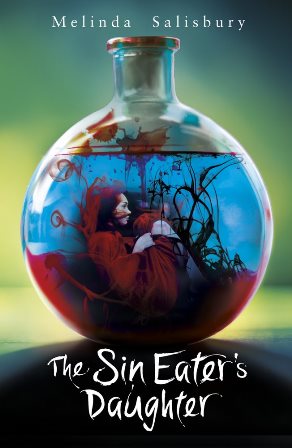It is a truth universally acknowledged that we all love a villain.

From the eponymous monster in Bram Stoker’s 1897 novel Dracula, to the recent film adaptation of Maleficent, we can’t help loving to hate, or sometimes simply loving, the villain. Villains have the best lines, villains wear the best clothes. They’re funnier, or sexier, or just more alluring than the hero. Fictional villains give us the opportunity to explore our dark side, to indulge in cruel, violent and even dangerous behaviour without any real-world consequences. And I’m no different - my favourite characters to write are always the villains.
I believe that to write the perfect villain, you have to make sure the villain has no idea they are the bad guy. Tom Hiddleston said of his character, Loki, from the Marvel franchise, that “every villain is the hero in their own mind”, and for me it’s the mantra that I always work with when I’m creating my bad guys. It’s what drives my villains to behave the way they do, to be determined, and calculating. Because they truly believe it’s for the greater good. Their belief in the righteousness of their course, and their determination to achieve it, whatever the cost, is what makes them terrifying; that they can rationalise their horrific behaviours is the stuff of nightmares. But what makes them truly sinister, what makes them stick in the mind is when their motives are human and uncomfortably relatable; the desire for power, money, fame, glory, love. To be better. To be best.
What really inspires me is the idea that someone –anyone - if they have the money, or the power, or simply the ability to be a villain, will embrace it. Because in my admittedly limited experience it’s true. And real. There have been countless studies where people have been asked if they’d commit crimes if they were guaranteed to get away with them, and the majority always say ‘yes’, whether the crime is something relatively harmless, like the theft of a chocolate bar, or something abhorrent, like murder. If there were no consequences, and we could gain something, we too might easily turn to the dark side. In fact, I’d go as far as to say that every single one of us has been the villain at some point, in some small or large way. We saw that fiver fall from a pocket and didn’t call out, we ignored that phone call from that person because we couldn’t be bothered. We lied about being ill, about why we were late. We smiled at the guy we knew our friend liked. We’ve undermined, ignored, marginalised. Small evils. Hardly evil at all… Right?
We find ways to justify our small evils and tell ourselves that it’s all right. That we had no choice. That in the end, it would be worth it. And for me, the perfect fictional villain will always do the same. They will plan and scheme and take every chance offered to further themselves. They’ll forget past alliances if they no longer serve, they’ll throw the people they love under a bus if that’s what it takes to win. The end will justify the means. They’ll always have a reason for what they’ve done. And it’s never, ever their fault. The perfect villain believes they are the one being wronged and that their actions are redressing the balance and putting things right. A really great villain will be able to convince other people of this, too.
The perfect villain is the negative version of the hero, the reflection of us – of what we fear, despise, or even desire in ourselves. A villain is never scarier than when we can see ourselves in them. When we understand them. To create the perfect villain, you have to find the villain inside yourself. You have to ask yourself why you behave badly sometimes. And why sometimes it feels good.
The perfect villain will make the hero question themselves and become a littler darker because of it. Villainy leaves a stain, and the perfect villain will do that to the hero, win or lose, they’ll make them compromise their integrity, make them fight a little dirtier, bring them down their level. For me, the perfect villain makes sure no one leaves the story pure. Not the hero, and not the reader either.
Melinda Salisbury lives by the sea, in the south east of England. She likes photography, travelling, riding her bike, and having adventures. She also likes medieval castles, non-medieval aquariums, Richard III, and all things Scandinavian. The Sin Eater’s Daughter is her first novel, and was published by Scholastic in 2015.
Comments